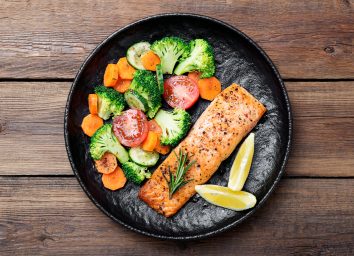Surefire Ways to Protect Your Heart, Say Dietitians
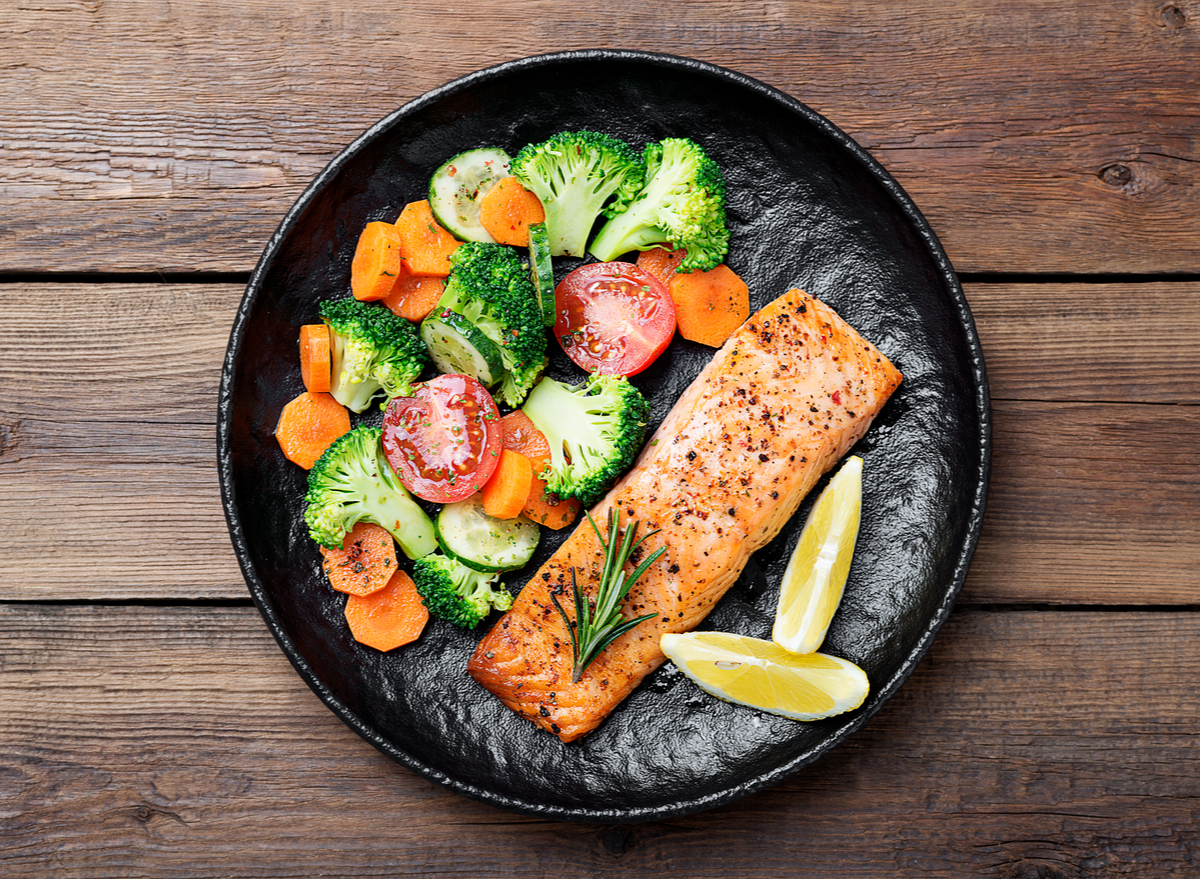
Your heart health is important at any age, but it's especially important to care for your heart as you get older. In fact, your heart undergoes some pretty hefty changes over time that make you more susceptible to heart disease or heart failure.
But fear not, because there are simple lifestyle switches you can make to help protect your heart and lower your risk of disease. For example, incorporating heart-healthy foods and avoiding items that can be harmful will make a world of a difference.
Continue reading to learn about some simple, surefire ways to protect your heart with the food you eat. And for more healthy heart tips, make sure to check out The Best Foods to Lower Your Risk of Heart Disease.
Get more omega-3 in your diet
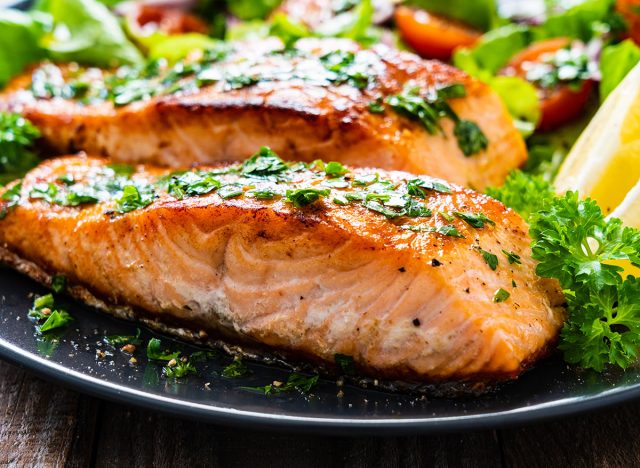
Chances are you've heard of taking fish oil or omega-3 supplements for a healthy heart, and it's for good reason.
"What we must understand is that our body doesn't make omega-3 on its own, so you need to get it from your diet," says Courtney D'Angelo, MS, RD, author at Go Wellness, "so the best thing to do is eat fish high in omega-3s like salmon, tuna, herring, mackerel, and trout."
D'Angelo also points out that if you're not a fan of fish, finding a good omega-3 supplement will work as well.
Eat whole grains
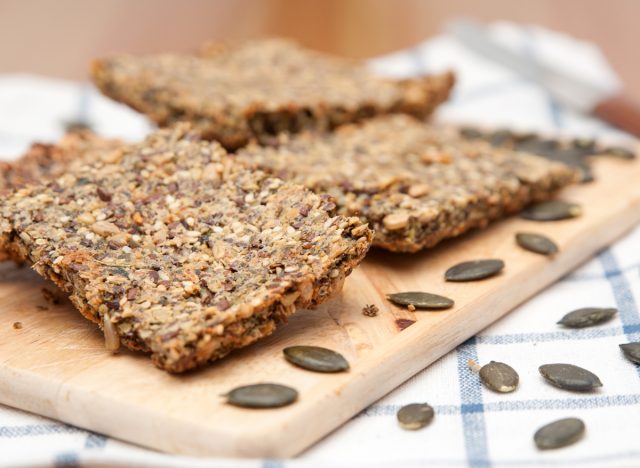
People are oftentimes so afraid of bread or carbohydrates, but there's no reason to fear whole grains. In fact, D'Angelo recommends incorporating them into your diet for better heart health.
"If you're someone who needs to lower your cholesterol or control blood sugar levels, eating whole grains helps with that," she says."
Increase soluble fiber intake
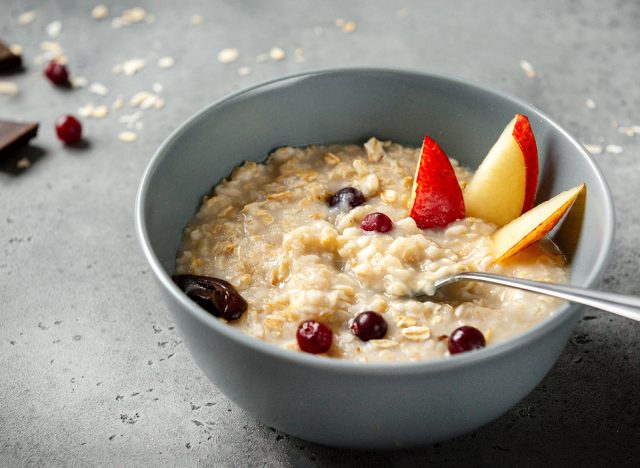
Another surefire way to protect your heart is by including more soluble fiber into your daily eating plan.
"During the digestive process, soluble fiber is transformed into a gel-like substance and can bind to cholesterol, helping it excrete from the body and thus lowering total and bad cholesterol," says Amy Goodson, MS, RD, CSSD, LD author of The Sports Nutrition Playbook. Lower cholesterol levels is linked to lower risk of cardiovascular issues.
If you're wondering where exactly to find soluble fiber, Goodson suggests "oats, foods made with oat flour, fruits where you can eat the skin, almonds, seeds, beans, and peas."
Decrease saturated fat intake
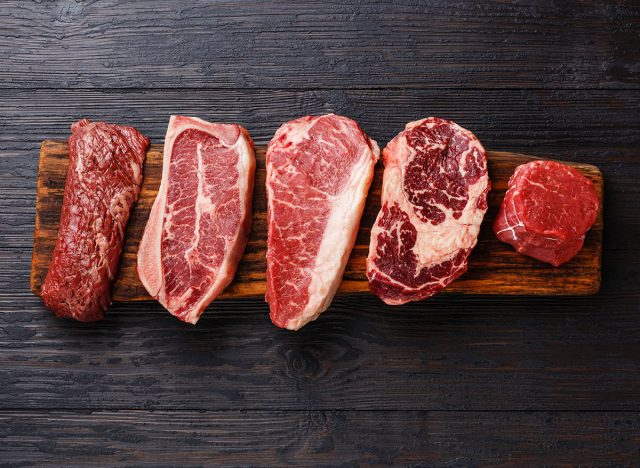
And lastly, limiting your levels of saturated fat—which is found in red meat, bacon, many pastries, and fried food—can greatly contribute to the betterment of your heart health.
"Saturated fat can contribute to an increase in cholesterol when consumed on a regular basis, so the goal is to eat 10% or less of your total calories a day coming from saturated fat," says Goodson.
She also warns that along with the foods listed above, saturated fat can sneakily appear in "many white, thick, and creamy goods like salad dressing, gravy, and Alfredo sauce."
Read these next:
